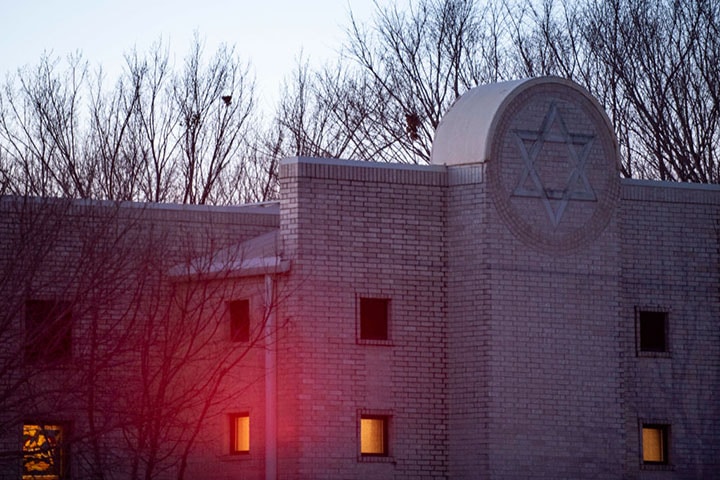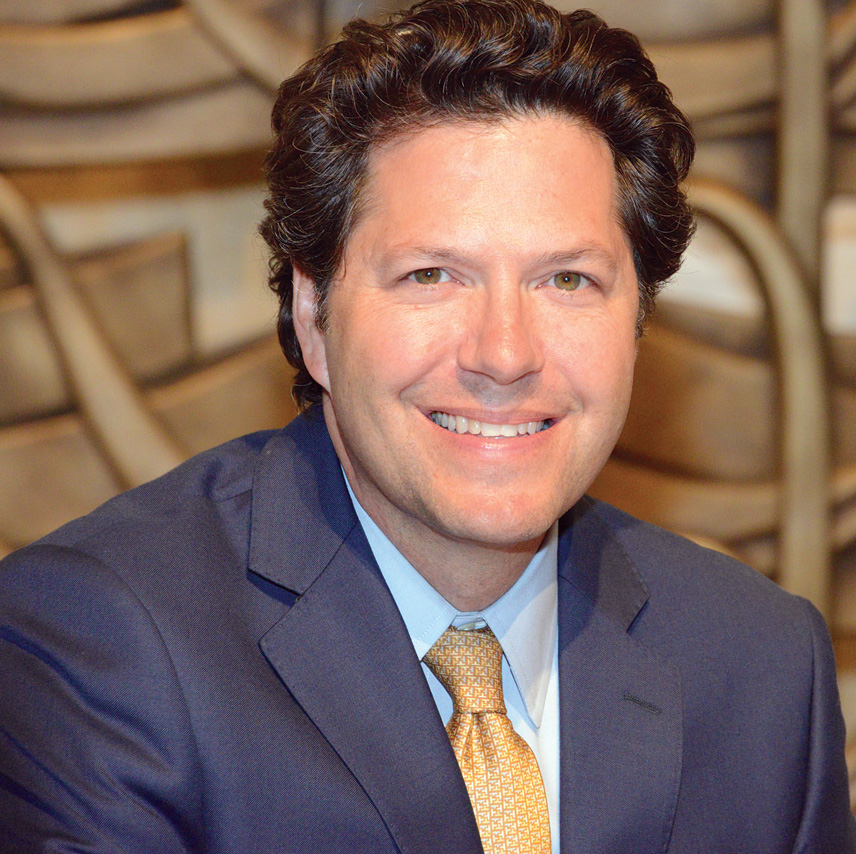 Congregation Beth Israel synagogue is shown on January 17, 2022 in Colleyville, Texas. (Photo by Emil Lippe/Getty Images)
Congregation Beth Israel synagogue is shown on January 17, 2022 in Colleyville, Texas. (Photo by Emil Lippe/Getty Images) Almost two weeks have passed since we first heard about a synagogue under attack in Colleyville, Texas. Sadly, we don’t need any more reminders about how rising antisemitism in America and around the world threatens our safety and security. We understand all too well that the Jewish community must be ever vigilant.
In some ways, moments like these are old hat for us. What is new is the speed with which we hear about it and respond. I learned about the situation just after Shabbat morning services. A colleague in Austin texted me that Beth Israel “in Colleyville, TX is being held hostage live on Facebook – you can hear Charlie Cytron-Walker talking with the gunman.” Within hours, we had sent a message of solidarity and hope to our community.
When we see ourselves as part of a People, part of the global Beit Yisrael (House of Israel), we experience these traumas collectively. Even if we didn’t personally know those taken hostage, we can see ourselves in that sanctuary. We can imagine our beloved clergy being called to display the calm, non-anxious presence of Rabbi Cytron-Walker.
Part of what helps me manage the anxiety that comes with being a Jew is the knowledge that we are here because previous generations faced similar challenges (and many far worse) and persevered.
Part of what helps me manage the anxiety that comes with being a Jew is the knowledge that we are here because previous generations faced similar challenges (and many far worse) and persevered.
My cousin, Rabbi Eliezer Davidovits, served as the head of the rabbinical court in Stranyan, Slovakia during the first half of the 20th century. In 1942 he was murdered by the Nazis but not before he memorialized much of his Torah in a manuscript that was rescued by his daughter after the war. This is how I came to learn a lesson about resilience from a relative who died twenty-seven years before I was born.
The Torah tells us that Yitro, Moses’s father-in-law, “heard all that God had done for Moses and for Israel…” (Exodus 18:10) Yitro was a Midianite priest who, according to Rabbinic tradition, later converted to Judaism precisely because of what he heard about our deliverance. The question my cousin asks is what specifically did Yitro hear that inspired him to become a Jew?
His answer is suggestive for this moment especially. He notes that a verse in Psalm 136 praises God for parting the waters of the Red Sea into “many partings,” using the plural form. My cousin teaches that the miracle at the Sea of Reeds happened for all of us as a collective but in a unique fashion for every Israelite. As our ancestors entered the sea, a special opening was created for every person. We all crossed over together but each in their own way, on their own path.
What a powerful metaphor for what it means to be a Jew. We have a shared history and a common destiny and at the same time, each of us experiences what it means to be a Jew in unique ways.
We all respond to challenging moments like these differently. Some of us, after hearing about an event like Colleyville, decide to show up to synagogue in person the following week for worship. Others post about their feelings on social media or process them with friends or a therapist. There are many ways to respond, many ways to move forward in the face of such hatred. What’s not an option – at least not a good one – is to give up. As Professor Deborah Lipstadt, the President’s nominee as special envoy to monitor and combat antisemitism, wrote last week in the New York Times: “We are resilient because we cannot afford not to be. That resiliency is part of the Jewish DNA. Without it, we would have disappeared centuries ago. We refuse to go away. But we are exhausted.”
We are tired of having to respond to antisemitic flyers, synagogue shootings, anti-Israel rhetoric, and daily aggressions about Jewish power or wealth. We are tired but we will not go away. We will get through this challenging moment. We will cross over to the other side. We will continue to be brave and resilient together, each one of us in her or his own way.
Rabbi Yoshi Zweiback is the Senior Rabbi of Stephen Wise Temple in Los Angeles, California.























 More news and opinions than at a Shabbat dinner, right in your inbox.
More news and opinions than at a Shabbat dinner, right in your inbox.